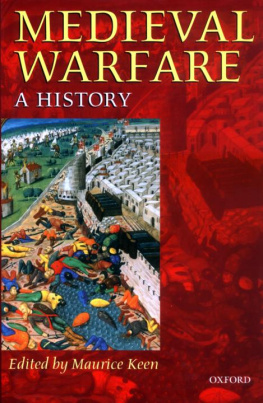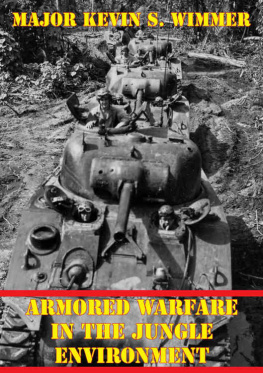Bibliographical Note
This Dover edition, first published in 2003, is an unabridged republication of the work originally published in 1929 by Yale University Press, New Haven, on the Kingsley Trust Association Publication Fund, established by the Scroll and Key Society of Yale College.
Library of Congress Cataloging-in-Publication Data
Davie, Maurice R. (Maurice Rea), 1893-
The evolution of war : a study of its role in early societies / Maurice R. Davie.
p. cm.
Originally published: New Haven : Yale University Press, 1929.
Includes bibliographical references and index.
9780486162218
1. War. I. Title.
U21.D3 2003
355.02dc22
2003055790
Manufactured in the United States of America
Dover Publications, Inc., 31 East 2nd Street, Mineola, N.Y. 11501
TO
PROFESSOR ALBERT GALLOWAY KELLER
PREFACE
F ACTS, Mr. Owen D. Young has said, are our scarcest raw material. Nowhere perhaps is this more apparent than in the broad field of international relations, where ignorance has long been the rule and enlightened understanding the exception. Assertions with respect to war have emanated from philosophers, clergymen, journalists, publicists, sentimentalists, peace advocates, apologists of war, and a host of others. Their views as to the causes of war, the history of conflict, and the outlook for the future are usually dogmatically stated. When placed side by side they appear inconsistent and contradictory. They have one thing in common: they lack the basis of fact. It is so much easier and more alluring to speculate as to the how and why of war than to grub for the facts.
Any inductive study of war should begin with the earliest evidence of its existence and trace the course of its development. The following represents an attempt to study scientifically the origins and early stages of the evolution of war. For reasons mentioned elsewhere no effort is made to bring the study of war down to modern times except to point out the bearings that different factors have on later stages. Aside from the advantages of studying war in its lowest terms, it must be obvious to the reader that a lifetime is too short and ones ability too limited to make a complete investigation of so tremendous a subject. A preliminary study was made some years ago in part fulfilment of the requirements for the degree of doctor of philosophy in the Yale Graduate School. This has been revised and expanded to its present form.
This book is designed for the general reader as well as for the special student. For the benefit of the latter a great many instances concerning various aspects of primitive warfare and primitive society are given in full in appendices. This collection of cases, so the author has been told, is exceptional; there is nothing similar in print. Sufficient cases have been left in the text to substantiate the positions taken and to enlighten the reading by actual, vivid, and sometimes rather amusing, examples.
I wish to express my thanks to Mr. Victor A. Rapport for his many criticisms and suggestions, and to Dean Clarence W. Men-dell and Mr. George Parmly Day for their kindly interest and assistance in publication. My indebtedness to Professor Keller can be acknowledged only in small measure by the dedication. To my colleague, Prof. George Peter Murdock, I owe a heavy debt of gratitude. He gave unsparingly of his time to a revision of the manuscript and was most helpful both in a literary and in a scientific way. I appreciate more than I can say the large share he has had in this enterprise and the delightful, though industrious, hours we spent together.
M. R. D.
New Haven , Conn.
August 1, 1929.
CHAPTER I
INTRODUCTION
PREHISTORIC WARFARE
F ROM earliest times to the present, man has always fought and has always had weapons, both natural and artificial, with which to decide his conflicts. Of the various lines of evidence supporting this conclusion, that of written history admittedly shows mans tremendous preoccupation with war. Another indication is furnished by traditions handed down from an age before the art of writing was known, traditions partly mythical but also partly historicalmixtures of real memory and mythic fancy. The study of comparative mythology has added many indubitable facts about early man. has said, What the poet relates may be fiction, what he mentions is apt to be history. Bearing in mind this difference between the theme and the setting, many authors have reconstructed for us the life which these ancient peoples lived. Mythologies abound in recitals of wars and the superhuman deeds of warriors, and in them war holds the chief interest in life. Though the events related must be discounted, incidental details as to weapons, mode of warfare, and the likefacts which belong to the setting rather than to the themesupply us with invaluable information.
Another source of information is the study of ethnology, or the customs, beliefs, and characteristicsin short, the cultureof less civilized races of the past and present who are unable to give a written account of themselves. Although the practice of restricting ethnology to a study of the cruder cultures of peoples without a knowledge of writing may be somewhat illogical and artificial, it serves many practical purposes. that in the lives of savages and barbarians the chief occurrences are wars.
Prehistoric archaeology makes it possible to reconstruct an earlier stage in the evolution of society than that represented by existing savage tribes, and to find still more primitive traces of warfare. The records here consist chiefly in the artifacts. These are of peculiar value, for we cannot have more certain evidence of mans existence than the implements which he has shaped and used. While prehistoric man left no account of his warfare, he did leave behind weapons which testify that he fought and that he was no mean adversary.
That primeval man made use of weapons is but natural, for, after the quest for food, his greatest need was to defend himself. The savage has to drive off the wild beasts which attack him, and in turn he hunts and destroys them. But his most dangerous foes are those of his own species, and thus in the lowest known levels of civilization war has already begun, and is carried on against man with the same club, spear, and bow used against wild beasts.
The stone casually picked up afforded an effective missile as well as something to strike with, and it is used in this primitive way by many savages today. Many of these weapons were undoubtedly used for other purposes than war, since they were relatively unspecialized.
The war club must have been one of the earliest weapons, though, being made of wood, it has left few or no traces. Hardly a savage tribe exists today which has not used or does not still use the club as a weapon, and we are forced to the view that Paleolithic man used a similar implement.
The Neolithic or New Stone Age brought great improvement in stone industry. It was characterized by the technique of grinding and polishing, which produces a stronger and straighter edge, and by the introduction of new implements. In Paleolithic times polishing, in the rare instances where it occurred, was not a part of the shaping process as it became in the Neolithic. Even in the latter period, however, the new technique was applied only to certain implements, especially those of the ax class. The flint dagger or poniardthe veritable chef doeuvre of Neolithic arta weapon apparently differentiated for use in war and the precursor of the sword, was always chipped rather than ground or polished. In this period the flint ax was invented and improved, the spear continued in use, the bow and arrow were introduced, and indubitable arrowheads of stone and bone make their appearance.










